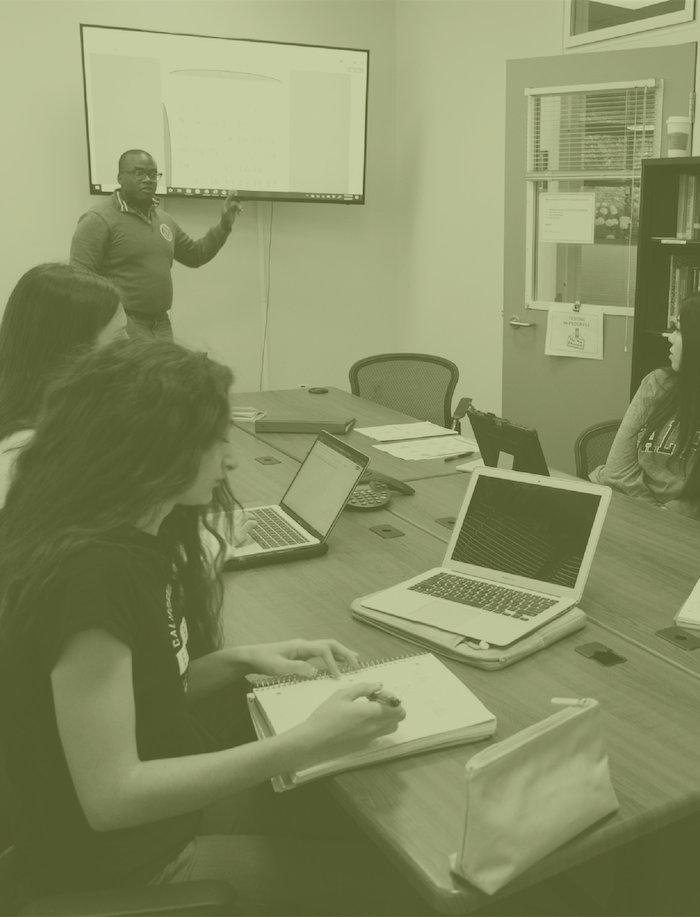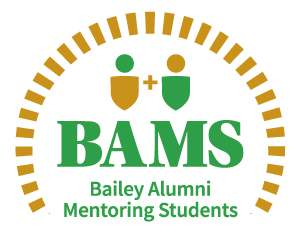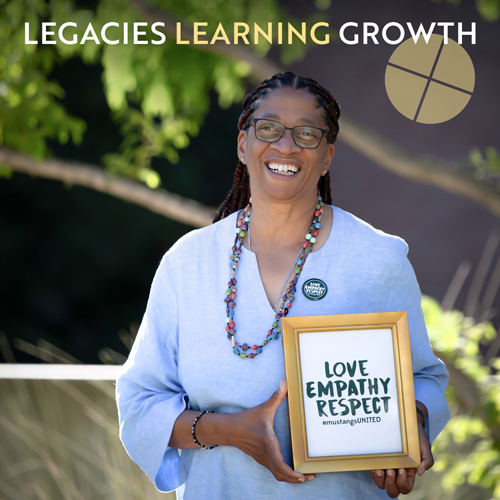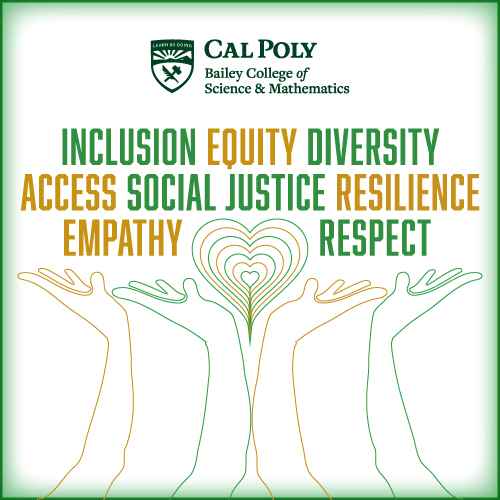The Gift of Math

Not everyone thinks of math worksheets as a gift.
As a kid, statistics instructor Immanuel Williams spent a lot of summer vacation time doing math worksheets, thanks to his dad.
“I wasn’t particularly good at math,” Williams said, an interesting admission from someone who went on to get his doctorate in psychometrics, a branch of statistics.

THE ABILITY TO GIVE BACK AND HELP STUDENTS LEARN IS WHERE I GOT INTERESTED.
— Mugen Blue
Now, Williams wants to pass on his dad’s gift of a love of mathematics to future generations. He’s especially interested in reaching children from disadvantaged backgrounds who don’t have the opportunity for extra math practice.
To help these kids, he teamed up with the Boys and Girls Club to offer the GATO365 Math Boot Camp, which stands for Going Above the Odds Every Day.
“I want to provide a resource where they’re doing math during the summer so there’s no lag from spring to fall,” Williams said. “It helps Boys and Girls Club make sure the students are still engaged in education.”
With 250 children in three locations throughout California in 2019, the program has already provided 2,000 hours of math instruction.
While this low-tech approach makes math education easily accessible, it also requires a lot of grading time. Cal Poly business majors Ohana Dorantes, Natalie Lesser and Jadin Stewart collectively have donated hundreds of hours to make sure students at the Boys and Girls Club find out how well they did.
Meanwhile, Williams and data science minor Mugen Blue are working on a high-tech solution to this problem — a machine learning algorithm that could make human graders unnecessary.
Implementing machine learning to grade worksheets is a complex proposition. It requires handwriting recognition to determine the correct answer and an algorithm that can track and adjust the worksheet difficulty for each student.
 “The ability to give back and help students learn is where I got interested,” Blue said. “I have learned that things may not always go the way that you want the first time around, but I have been able to work on a passionate team to come up with solutions.”
“The ability to give back and help students learn is where I got interested,” Blue said. “I have learned that things may not always go the way that you want the first time around, but I have been able to work on a passionate team to come up with solutions.”
When Blue's improvements are complete, the GATO365 program can expand, making math familiar to large groups of kids who might once have thought it was out of their reach.
“Research shows that children’s math performance has a lot to do with their attitude toward math,” Williams said. “With this year-round exposure to math, I think we could change the minds of a whole population of kids who might never consider a career in STEM because they’re afraid of math.”
Read more about Healthy Minds in The Future of Teaching Science and Lifelong Learner





